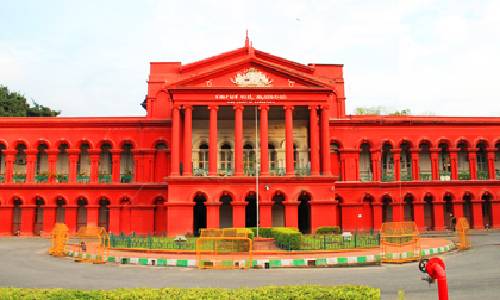
In the case of M/s Geosmin Studio Sustainable Solutions LLP versus M/s Ethnus Consultancy Services Pvt. Ltd, an agreement for "Interior Architectural Services and Construction" between the petitioner, M/s Geosmin Studio Sustainable Solutions LLP, and the respondent, M/s Ethnus Consultancy Services, had an arbitration clause. The petitioner sought the Council of Architecture to request the appointment of an arbitrator after a number of disagreements between the parties. However, the Council denied the petitioner's request for the appointment of an arbitrator on the grounds that the petitioner, an LLP, is ineligible to serve on the Council and that one of the LLP's partners is not a licensed architect.
In order to have a Sole Arbitrator decide the parties' disagreement, the petitioner then filed a petition with the Karnataka High Court. The respondent M/s Ethnus Consultancy Services argued before the High Court that the Arbitration Clause is void and cannot be relied upon because the Council of Architecture refused to appoint an arbitrator on the grounds that one of the partners of the petitioner firm was not an architect and on the grounds that the petitioner, being an LLP, could not be a member of the Council.
The respondent further argued that the petitioner had not directly referred to the Arbitration Clause in the notice it had issued under Section 21 of the Arbitration and Conciliation Act of 1996, simply stating that the matter will be referred to the Council of Architecture. The respondent asserted that it is therefore impossible to refer the parties to arbitration.
The Council of Architecture had declined to name an arbitrator because the petitioner was registered as an LLP, the Court said. The Court further noted that the Council had rejected the petitioner's request for the appointment of an arbitrator on the grounds that one of the petitioner firm's partners was not an architect, a position that the petitioner disputed.
The Court determined that the Council of Architecture would have the authority to designate an arbitrator even if one of the partners is an architect registered with the organisation. The Court then instructed the Council of Architecture to take the petitioner's request for the appointment of an arbitrator into consideration.
The Respondent argued that the Arbitration Clause was illegal and non-est since the Council of Architecture refused to appoint an arbitrator, but the Court rejected this argument. The Court determined that the aforementioned argument was false, meriting the harshest possible criticism. The Court further stated that a party to an arbitration may raise legitimate legal arguments, but not false ones.
The Court determined that because the Council of Architecture is an arbitral institution as defined by Section 11 of the Arbitration and Conciliation Act, 1996, the petitioner's notification that the matter will be sent to the Council of Architecture was sufficient to invoke the arbitration clause.
The Court further explained that a party need merely refer the dispute to the specified arbitral institution; the institution will then choose an arbitrator. According to the Court, it is sufficient if a party mentions referring the dispute to the institution for arbitration; naming an arbitrator is not a prerequisite.
Though it is a case for imposition of costs on the respondent for delaying the arbitration, this Court refrains from doing so, the court noted in reprimanding the respondent for raising false arguments.
The Court then gave the Council of Architecture a directive to take into account the petitioner's request for the appointment of an arbitrator as well as the information that the petitioner had submitted to the record demonstrating that one of the partners in the petitioner firm is an architect.

